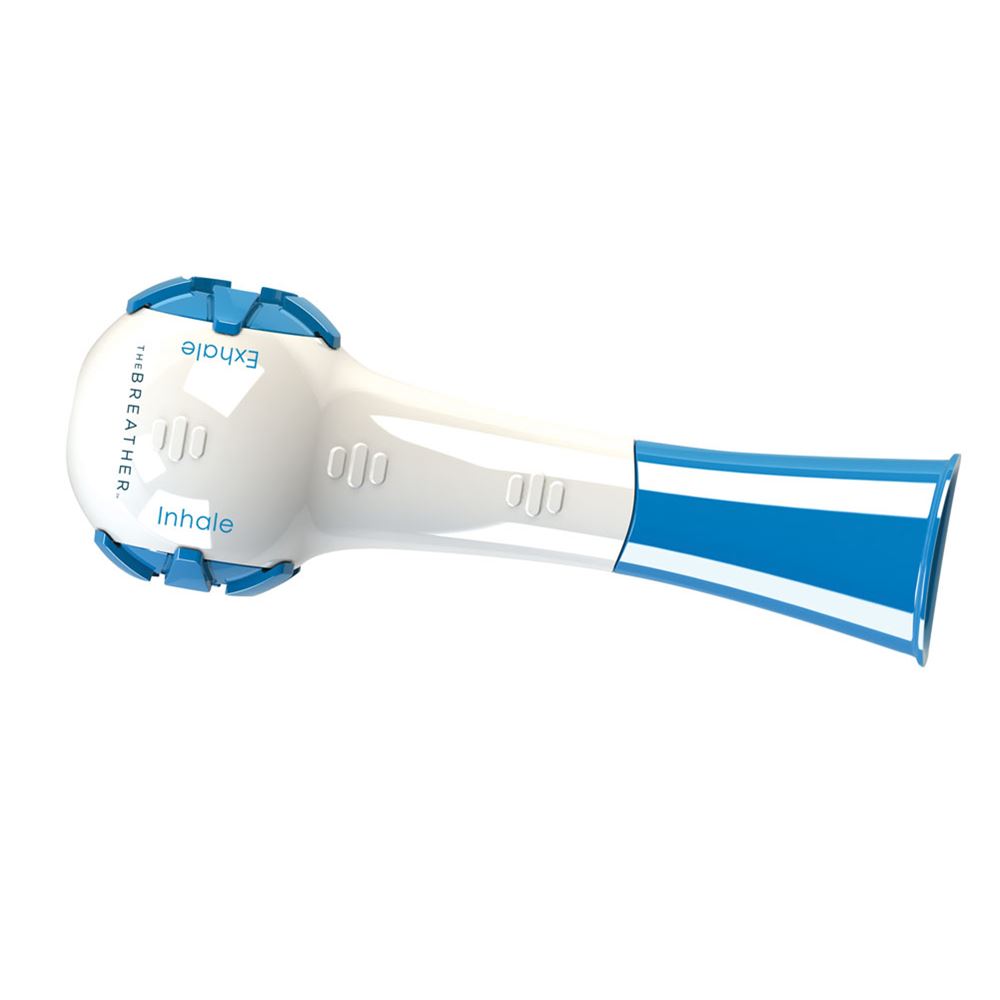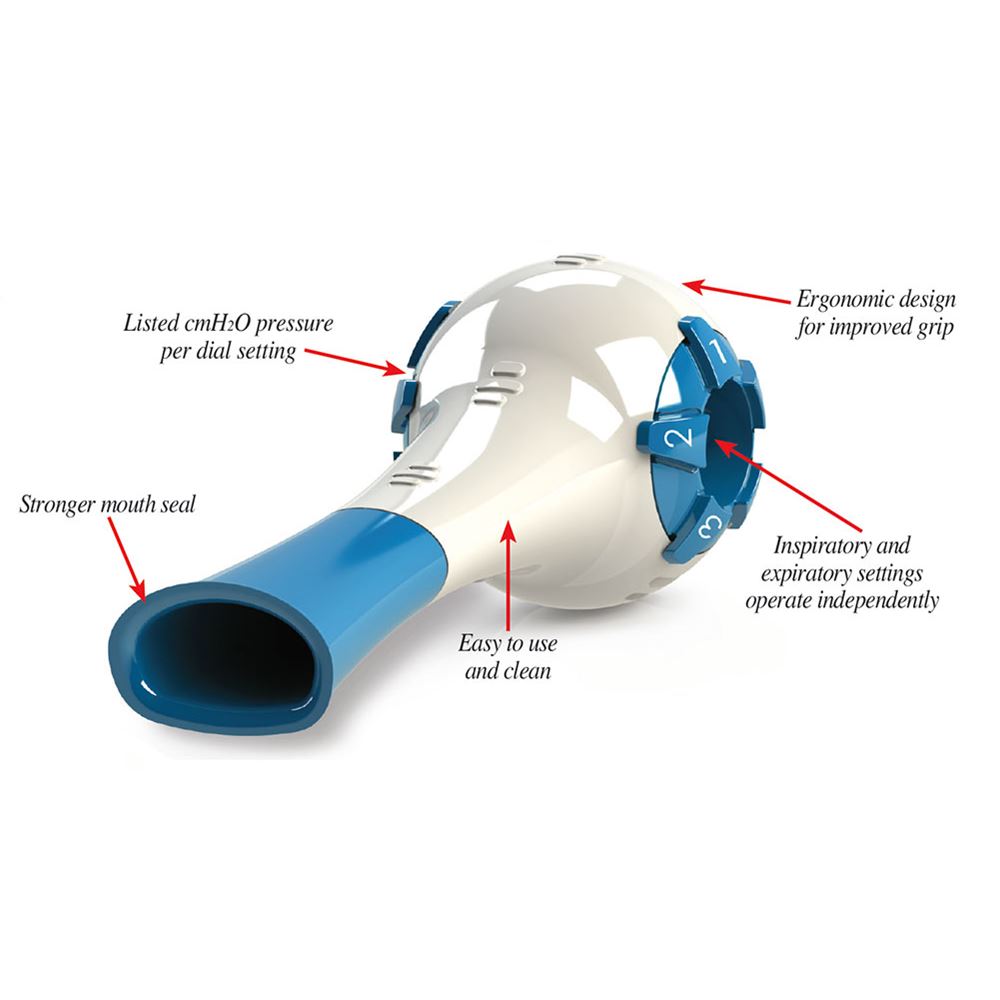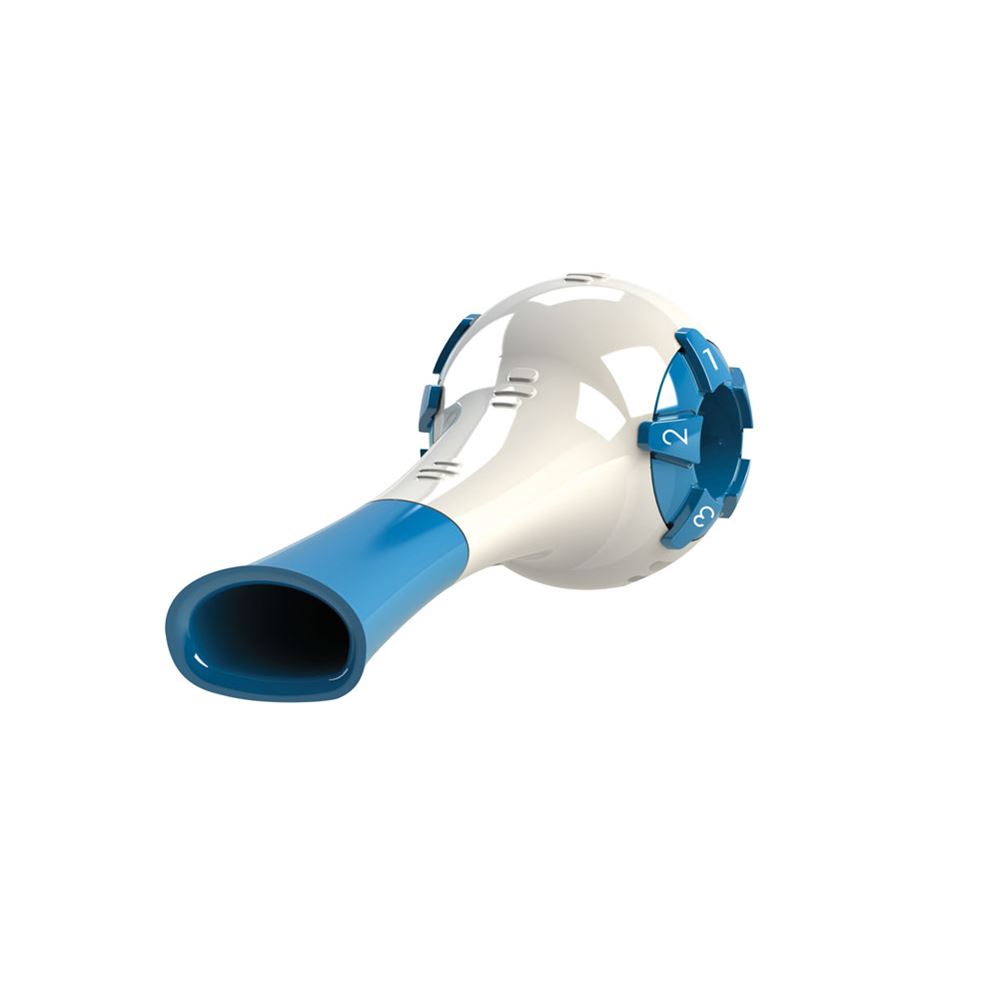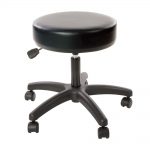The Breather 1.1 is an effective hand held trainer that strengthens both inspiratory and expiratory muscles. The principle of resistance to the intake of air and to the release of air against resistance is essentially the same principle used as in weight training. 4-1/2″L. Instructions included.
The Breather® may be beneficial for everyone interested in developing strength and endurance for their respiratory muscles. Respiratory muscles, like other muscles, can weaken from prolonged illness, aging, and neuromuscular diseases.
Respiratory breathing/strength training is an effective tool to teach diaphragmatic breathing for breath support. Strong breath support is also essential for coordination of speaking, swallowing and coughing.
Inspiratory resistance strengthens the diaphragm and the external intercostal muscles (accessory breathing muscles surrounding the ribs) and the accessory muscles of the neck.
Exhalation resistance strengthens and tones the internal intercostals and abdominal muscles. In addition, exhalation resistance mimics pursed lip breathing which helps to safeguard against trapping air in the lungs during training. It may also help to clear mucus in the airways.
See the video now: The Breather 1.1
Manufactured by: http://www.pnmedical.com/the-breather/
References:
1. The Coordination of Breathing and Swallowing in Parkinson’s Disease. Gross, R.D., et al, Dysphagia, 2008, 23:136-145
2. Effect of inspiratory muscle training in patients with multiple sclerosis. Arch Phys Med Rehabil. 2003 Jul;84 (7):994-9
3. Respiratory muscle training in neuromuscular disease: long-tern effects on strength and load perception. Med. Sci. Sports Exerc., Vol. 31, No. 11,pp. 1522-1527, 1999
4. Impact of inspiratory muscle training in patients with COPD. (ERJ European Respiratory Journal, February 1, 2011 vol. 37 no. 2 416-425)
5. Impact of Expiratory Muscle Strength Training on Voluntary Cough And Swallow Function in Parkinson’s Disease. Pitts, Teresa, et al, Chest, May 2009, vol.135, no.5, 1301-1308




